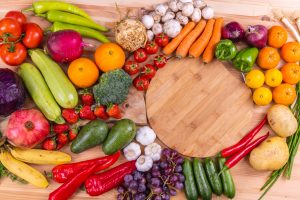What Are the 5 Main Nutrition?


There are Five main nutrition that your body needs to operate properly. These are carbohydrates, protein, fats, vitamins, and minerals. Carbohydrates are the most common of the five Nutrition providing the body with energy. They are also used to build tissues and help the body fight infection.
Carbohydrates
Carbohydrates are the primary source of energy for all cells in our body. Excess glucose is either converted into glycogen or stored in body fat cells for later use.
Our bodies comprise many organs and tissues requiring energy for different processes. Glucose is the main fuel for our brain and nerve cells and the primary energy source for the muscles during physical activity.
Carbohydrates come in various forms, from fruits and vegetables to bread, beans, pasta, milk, and sweets.
Proteins
Proteins are a large part of the body and are important in driving metabolic reactions, maintaining pH and fluid balance, and keeping your immune system strong. They also help with nutrient transport.
Your body needs protein to build and maintain your body’s tissues, muscles, organs and bones. It is one of the three main macronutrients, alongside fat and carbohydrates.
Proteins are made of a series of amino acids that form long chains. Each chain is unique, and the sequence of amino acids determines the protein’s shape.
Fats
Fats are important macronutrients, providing a large proportion of total energy in the diet. They play a role in several vital functions and help keep the body warm, protect the skeleton, and make it possible for other Nutrition to do their jobs.
Fats are divided into saturated and unsaturated fats, which can have different health effects. Saturated fats are commonly found in meat and dairy products, while unsaturated fats come from oils, seeds, nuts, and avocados.
Vitamins
Vitamins are organic molecules essential for the normal growth and functioning of higher forms of animal life. Unlike most other biological compounds, these substances cannot be synthesized adequately for survival and must therefore be obtained from the diet.
The nine water-soluble vitamins – C and the B-complex vitamins (thiamine, riboflavin, niacin, pantothenic acid, biotin, vitamin B6 and vitamin B12) – dissolve in water.
Minerals
Minerals are the building blocks of our bodies, and they make up nearly everything we see. The iron in steel – buildings, cars, aircraft and other construction; copper in electrical wiring, batteries and rechargeables; the graphite (not lead) in pencils; the talc in powdered cosmetics; even the pigments in paints and mobile phones are minerals.
Minerals are naturally occurring homogeneous solids with a definite chemical composition and a highly ordered atomic arrangement.
Water
Water is an essential component of life on Earth. It covers nearly three-quarters of the planet in its liquid and solid states, Nutrition, groundwater and oceans, and clouds and ice in the air.
Water is a polar solvent and can bind tightly to itself, other molecules and substances through hydrogen bonding. This allows water to cling to its surroundings, helping it move through the roots of plants and our bodies.
